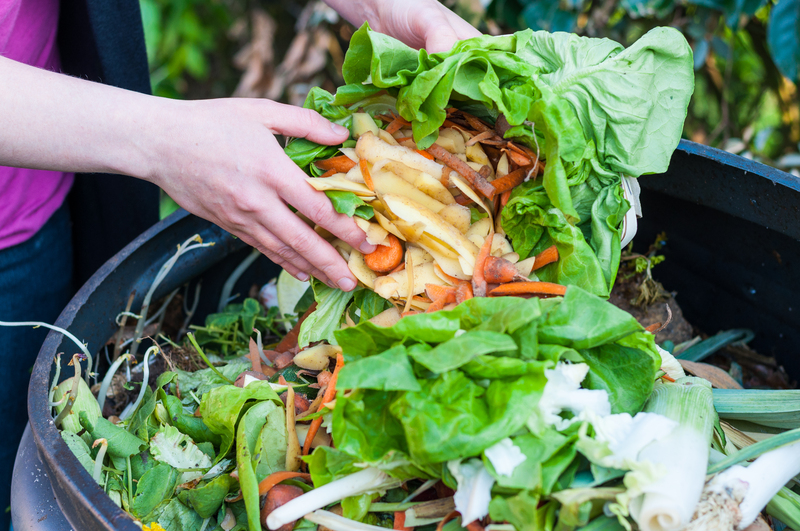As the world increasingly embraces environmentally friendly solutions, industries across the globe are looking for innovative ways to reduce their ecological footprint. One such industry at the forefront of this movement is the restaurant sector. Incorporating recycling and sustainable practices not only meets the growing consumer demand for eco-consciousness but also provides a substantial reduction in costs and environmental impact. This article explores the trailblazing methods that restaurants are employing to advance their recycling efforts.
Understanding the Importance of Recycling in Restaurants
Restaurants are notoriously known for producing substantial amounts of waste. From food scraps to packaging materials, there is a diverse range of elements that can contribute to an establishment's garbage output. By pioneering effective recycling techniques, restaurants can play a significant role in mitigating waste and promoting sustainability.
- Reduction in Waste Management Costs: Recycling can significantly cut down the costs associated with waste disposal.
- Environmental Impact: Recycling helps conserve natural resources and reduces the strain on landfills.
- Consumer Expectation: Modern diners often seek establishments that prioritize ecological practices.


Innovative Recycling Practices in the Restaurant Industry
The race toward sustainability has led many pioneering restaurants to adopt creative recycling practices. These initiatives are setting benchmarks for others in the industry to follow. Let's delve into some of the most noteworthy practices:
1. Composting Food Waste
Composting is one of the most effective ways to manage food waste. By converting organic waste like fruit and vegetable peels, coffee grounds, and egg shells into nutrient-rich compost, restaurants can reduce their landfill contributions and even enrich the soil for local farmers.
Key benefits of composting include:
- Reduction in Waste Disposal Fees: Less waste to dispose of means lower fees.
- Eco-friendly Fertilizer: Provides local farmers with a sustainable source of fertilizer.
- Closed-loop Systems: Supports local agriculture, which in turn can supply the restaurant.
2. Upcycling Initiatives
Another innovative trend in the restaurant industry is upcycling, which involves converting waste materials into new and useful products rather than discarding them. This can range from using wine corks for decoration to creating art from wine bottles.
Examples of upcycling:
- Wine Cork Boards: Using old corks to create notice boards or decorations.
- Jar Storage Solutions: Glass jars turned into storage containers.
- Sustainable Decor Projects: Repurposing old fixtures and furnishings.
3. Implementing Precise Waste Segregation Systems
A meticulous waste management strategy is critical for successful recycling. By categorizing waste into distinct bins for recycling, composting, and general trash, restaurants can ensure that each material type is disposed of correctly. Effective waste segregation not only simplifies the recycling process but also maximizes the amount of waste that can be recycled.
Advantages of robust waste segregation systems:
- Efficient Recycling: Maximizes the amount of material recycled.
- Clear Guidelines: Provides staff with clear instructions on sorting waste.
- Improved Tracking: Enables better tracking and reporting of recycling efforts.
4. Utilizing Eco-friendly Takeaway Packaging
The shift towards sustainable packaging solutions is another remarkable development in the restaurant industry. Many restaurants now use biodegradable or recyclable packaging made from materials like cardboard, cornstarch, or recycled paper.
Benefits of eco-friendly packaging include:
- Waste Reduction: Limits the use of single-use plastics.
- Customer Appeal: Attracts eco-conscious consumers.
- Improved Brand Image: Builds a brand identity centered around sustainability.
5. Partnering with Local Recycling Facilities
Collaboration with local recycling facilities can be a game-changer for many restaurants. These facilities often provide the expertise and infrastructure necessary to manage and process waste efficiently. By working together, restaurants can ensure that their waste is being handled correctly and sustainably.
Partnership benefits include:
- Enhanced Recycling Rates: Increased efficiency in processing recyclable materials.
- Expert Guidance: Access to professional advice on best practices.
- Community Connections: Strengthened ties with the local community.
Embarking on the Journey to Sustainability
As the pressure mounts for all industries to move towards sustainable practices, the restaurant industry is stepping up to the challenge with innovative recycling strategies. By embracing these pioneering practices, restaurants can do much more than just lessen their environmental impact--they can pave the way for a greener, more sustainable future for the industry as a whole.
From composting food scraps to using eco-friendly packaging, the creative methods being adopted by restaurants today serve as a testament to what can be achieved with determination and progressive thinking. As more establishments take up the mantle of sustainability, it is clear that recycling is not merely a token gesture but a vital component of responsible and forward-thinking business models.